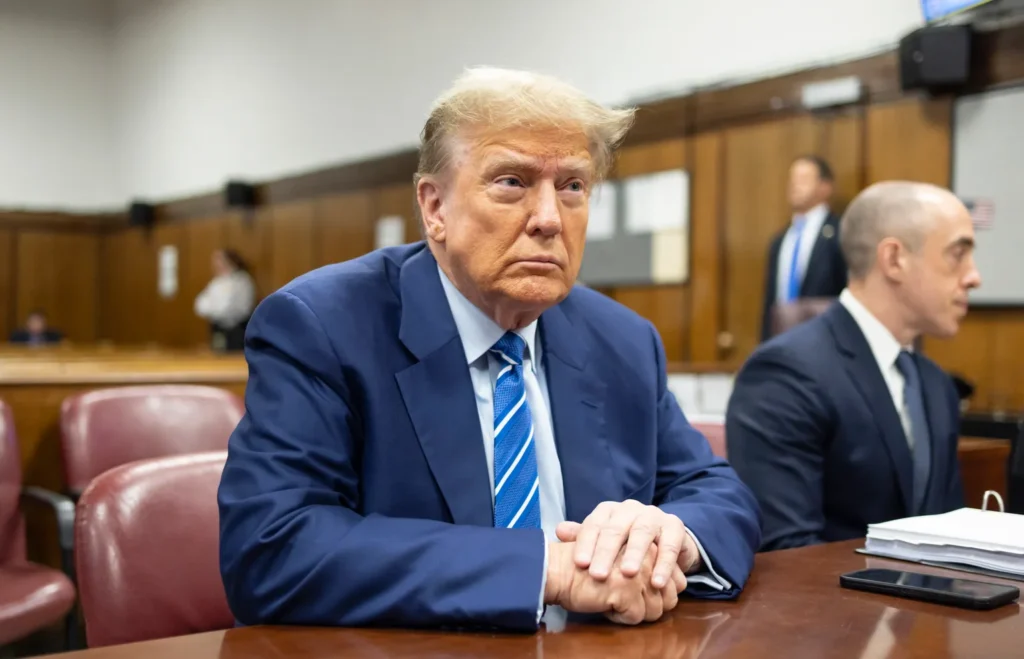
Legal experts are weighing in on the implications of former President Donald Trump’s recent conviction, with some suggesting he could face up to four years in jail and financial penalties. However, with Trump’s return to the White House now less than 80 days away, experts are speculating that the outcome could be far less severe. According to them, Trump might receive only a fine, or possibly even a full dismissal of the case, as his sentencing date of Nov. 26 approaches.
The sentencing had originally been scheduled for September, but Judge Juan Merchan postponed it, citing a July 1 Supreme Court decision that granted former presidents a degree of immunity from certain official acts. Although the Supreme Court ruling directly pertained to two of Trump’s federal cases, his defense attorneys argued that it should extend to the New York case regarding hush money payments.
“It’s certainly possible the sentencing will not happen,” said Alan Dershowitz, Harvard Law School professor emeritus and a veteran appellate lawyer who previously represented Trump during his first impeachment trial. “It should not happen,” he added.
Dershowitz went on to question the strength of the New York case: “I don’t understand the case against Trump in New York. If I had a class in criminal law, and they asked me to describe the conviction against Donald Trump, I couldn’t do it. And so if you can’t even describe it or understand it, this is just no crime here. I think the only real impact of the New York cases, it probably contributed slightly to Trump’s election.”
Merchan has postponed the sentencing until after the election, stating he would consider the Supreme Court’s decision on immunity and determine if sentencing should even proceed. Should sentencing go forward, Merchan will also decide whether to proceed by the end of this month or to delay until after Trump’s Jan. 20 inauguration.
The Supreme Court’s decision in Trump v. United States established that former presidents have some immunity from criminal prosecution for official actions taken in office. Although this ruling stemmed from an appeal related to the 2020 election subversion case, Trump’s legal team is attempting to apply it to the hush money case in New York.
If Merchan were to rule in Trump’s favor—either by overturning the conviction or by delaying sentencing—it would clear one of the four criminal cases Trump has faced while campaigning for reelection.
Despite the conviction, a full prison term for Trump is seen as highly improbable. Trump is more likely to face fines or probation, with some experts predicting a fine if sentencing occurs before the inauguration.
Meanwhile, the Justice Department is carefully considering its next steps in two federal cases against Trump, led by Special Counsel Jack Smith. The Department’s longstanding policy advises against prosecuting sitting presidents. However, state charges in Georgia, related to alleged attempts to overturn the 2020 election, remain unresolved.
Trump, 78, has pleaded not guilty to all four cases and insists they are politically motivated attempts to interfere with his campaign. If he serves a second term, Trump will be 82 by its end. Legal experts suggest Trump’s age and lack of a criminal record could be factors in any final sentencing decision, following his conviction by a New York jury in May.
The jury convicted Trump on all 34 felony counts related to falsifying business records, charges tied to hush money payments to adult film actress Stormy Daniels during the final days of the 2016 campaign. Trump has denied any affair with Daniels and called the case brought by Manhattan District Attorney Alvin Bragg a “witch hunt.”
Trump spokesperson Steve Cheung said last Friday that the sentencing should be dismissed. “It is now abundantly clear that Americans want an immediate end to the weaponization of our justice system, so we can, as President Trump said in his historic victory speech, unify our country and work together for the betterment of our nation.”
Trump’s legal team argues that the recent Supreme Court ruling on presidential immunity invalidates any evidence related to official acts presented in trials that focus on personal conduct. His defense claims that the jury was shown evidence, including social media posts and testimony from former aides, linked to his presidential duties.
Prosecutors, however, argue that Trump’s actions were personal and fall outside the protections of presidential immunity.


















